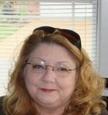"Enabling" can be described as a behavior pattern of the significant people in the life on an addict or alcoholic. "Enabling" involves rescuing the alcoholic/addict from the negative consequences of his or her behavior. When the addict has those negative consequences of his/her addiction removed, the significant other is, in effect, "enabling" the addict to continue drinking/drugging. The significant other enablers the addict to stay in active addiction. This effect is usually not the intention of the worried and caring family member or friend. Most of the time the significant other is trying to "help" rather than hurt. People who love an addict/alcoholic may see the link between the drinking/drugging and the problems associated with it. They erroneously believe that if they can intervene and solve the problems associated with the drinking/drugging, that the addict will be able to regain control over his/her life.
Family members often seek help for the addict or their relationship with the addict, before the addict seeks help. In doing so, they usually learn about "enabling" and are instructed to stop picking up the pieces for the addict. They become hopeful that when they stop enabling, that the addict will have to get sober. Family members often become angry and confused when other "enablers" move into the forefront and take up where they left off.
Alcoholics/addicts in active addiction often have layers of enablers. When the family members of addicts finally get to a place where they can detach, either with anger or with love, there are often others willing to step up and take over their enabling roles. These second, third, (and so forth) layers of enablers could be made up of parents, spouses, friends, coworkers, boss, clergy, community agencies, etc. The ways that they enable is much like the primary enablers (parents and spouses). They provide money, food, shelter, transportation, etc.
Second tier enablers can become engaged in the same struggle over control that primary enablers do. They try reason, logic, argument, bribery, shaming, lectures, and threats to get the addict to step up and take responsibility for his/her life. They tend to suffer from the mistaken assumption that the addict can take control if s/he just would.
For most alcoholics/addicts to take control of his/her life, it is necessary to receive appropriate treatment for addiction. It does not matter where an addict is addicted to crank, pot, or prescription drugs. Most people need professional help to put their addiction into remission so that they have an opportunity to resolve the other problems in their lives. Significant others of addicts/alcoholics initially mistakenly think that the addiction will go away if the problems associated with it are resolved. One example is financial irresponsibility. Addicts can become financially responsible once sober, but cannot become sober by becoming financially responsible. It does not work that way.
Like other family members, the second tier of enablers often believe that if an addict can get a better place to live, a job, disability benefits, (or any other desired element), that they can feel better and become motivated to quit drinking/using. Significant others often operate from the mistaken assumption that the alcoholic/addict drinks and uses because of the circumstances of their his/her life instead of the probability that the negative circumstances exist because of the drinking/using. Most people do not start drinking or using to escape from problems. They start drinking/using for fun, recreation, or socializing. Problems, such as low self esteem, trauma, unresolved grief, and other troubling conditions can help create a climate where addiction can occur. Many factors come together to create addiction, and it is erroneous to point out one or two factors as the cause.
People trying to find their way into recovery need all the help they can get. The numerous articles on my website that are available to you, cover Individual and Family Dynamics of Addiction and Recovery, Marriage, Sexual Addiction, Mental Health, Couple Communication, and Skill Development, along with other informational resources such as a Recommended Readings page, a Links page, an Ask Peggy column, Surveys, and e-books. To check out my website, go to http://www.peggyferguson.com To purchase and download my ebooks on addiction and recovery, go to http://www.peggyferguson.com/ServicesProvided.en.html
The information in this article (and on my website) is for educational/information purposes only, and is not a substitute for professional medical advice, examination, diagnosis or treatment.
Dr. Peggy L. Ferguson, Ph.D., LADC, LMFT, Marriage/Family Therapist, Alcohol/Drug Counselor, Writer, Trainer, Consultant, provides professional counseling services in and around Stillwater, Oklahoma.

Post new comment
Please Register or Login to post new comment.